The Latest News and Updates
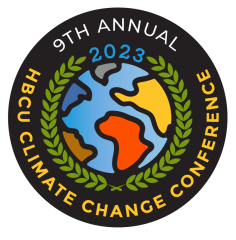
Oct 13, 2023
ICYMI: DSCEJ AND THE BULLARD CENTER FOR ENVIRONMENTAL & CLIMATE JUSTICE HOST COMMUNITY FORUM AT THE NINTH ANNUAL HBCU CLIMATE CHANGE CONFERENCE
Community Forum Kicks Off Four-Day Event Bringing HBCU Students, Professors, Advocates, Policy Leaders to New Orleans NEW ORLEANS, LA – This week, the Deep South Center for Environmental Justice (DSCEJ) and Robert D. Bullard Center for Environmental and Climate Justice kicked off its ninth annual HBCU Climate Change in New Orleans, LA by hosting the "It's About Justice" community forum. The solution-oriented dialogue centered around the urgency of addressing environmental injustices. A keynote speech by Minnesota Attorney General Keith Ellison on criminal, racial, and environmental justice followed the Forum. The event wrapped up with a reception and book signing session, during which Keith Ellison autographed his book "Break the Wheel: Ending the Cycle of Police Violence," Heather McTeer Toney, Executive Director of the Beyond Petrochemicals Campaign, signed copies of her book "Before the Street Lights Come On: Black America’s Urgent Call for Climate Solutions," and Dr. Robert Bullard and Dr. Beverly Wright added their signatures to their collaborative work, "The Wrong Complexion for Protection: How the Government Response to Disaster Endangers African American Communities." This year’s conference theme is Looking Back to Move Forward: Building a Climate Resilient Future for Vulnerable Communities. Attendees will address issues related to climate justice and resilience, like transportation, energy sources, carbon emissions, green jobs, the creation of a green economy, and community economic development. “The HBCU Climate Change Conference has been a major focus of our work for the last decade as we seek to train and influence the next generation of environmental justice leaders. We belive that HBCUs are the frontline for innovative thinking to solve the greatest crisis of our time,” said Dr. Beverly Wright, founder and executive director of the Deep South Center for Environmental Justice. “This is an opportunity to bring together Black faculty, students, policy experts and researchers together to bridge the gap between actionable solutions and theory to provide solutions that will have a tangible impact on our communities.” “It was a magic moment to share the book signing stage with some fantastic authors who not only research, meticulously document and write books about the struggle of Black people, but more important were the change agents themselves in frontline communities quest for environmental, climate, economic, racial justice in policing,” said Dr. Robert D. Bullard, Director of the Bullard Center for Environmental and Climate Justice at Texas Southern University and Co-Chair of the HBCU Climate Change Consortium. “And like our HBCU Conference, its all about justice.” “Climate justice must be seen as part of, and not distinct from, racial justice,” said Minnesota Attorney General Keith Ellison. “The impacts of climate change won’t be felt evenly – Black, brown, and Indigenous communities will be hurt first and worst. We have to be our own salvation, and use the tools at our disposal to move us forward.” Other notable speakers scheduled throughout the conference include Chair Brenda Mallory of the White House Council on Environmental Quality, Tennessee State Representative Justin Pearson, Rev. Lennox Yearwood of the HipHop Caucus, Dr. Mithika Mwenda of Pan African Climate Justice Alliance, and Dr. Calvin Mackie of STEM NOLA among other scholars, students, advocates, and experts. ### About the Deep South Center for Environmental Justice Families in the Gulf Coast deserve to live in communities that are free from deadly air and are more resilient to climate change and extreme weather. The Deep South Center for Environmental Justice (DSCEJ) works to empower and engage communities to put environmental justice and equity at the center of all climate action. Led by environmental justice scholar and advocate, author, civic leader, and professor of Sociology Dr. Beverly L. Wright, the DSCEJ uses research, education, and community and student engagement to advocate for policy change, lead health and safety training for environmental careers, develop social and emotional community wellness programs, and create new and environmentally healthy opportunities for the residents of communities disproportionately impacted by historic environmental injustice. About Bullard Center for Environmental and Climate Justice The Bullard Center for Environmental and Climate Justice at Texas Southern University addresses longstanding issues of systemic inequality and structural racism that cause disproportionate pain, suffering and death in Black and other people of color communities. The Center is directed by environmental justice scholar Dr. Robert D. Bullard and is housed in the Barbara Jordan-Mickey Leland School of Public Affairs. It strives to be a leading force for transformative environmental, climate and racial justice using rigorous science, community-driven research, policy, civic engagement programming, and effective advocacy. ...
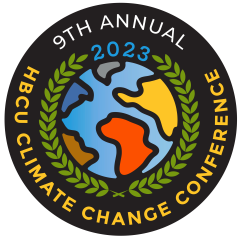
Oct 4, 2023
DSCEJ AND THE BULLARD CENTER FOR ENVIRONMENTAL & CLIMATE JUSTICE TO HOST NINTH ANNUAL HBCU CLIMATE CHANGE CONFERENCE
NEW ORLEANS, LA – On Wednesday, October 11, 2023, leading environmental justice organizations, the Deep South Center for Environmental Justice (DSCEJ) and Robert D. Bullard Center for Environmental and Climate Justice, will kick off the ninth annual HBCU Climate Change in New Orleans, LA. This year’s conference theme is Looking Back to Move Forward: Building a Climate Resilient Future for Vulnerable Communities. The conference will bring together HBCU faculty and students, researchers, climate professionals, and environmental justice and coastal community residents impacted by toxic facilities and severe weather events. Notable speakers include Dr. Beverly Wright, Dr. Robert Bullard, Minnesota Attorney General Keith Ellison, Chair Brenda Mallory of the White House Council on Environmental Quality, Dr. Mithika Mwenda of Pan African Climate Justice Alliance, Tennessee State Representative Justin Pearson, Rev. Lennox Yearwood of the HipHop Caucus and Dr. Calvin Mackie of STEM NOLA among other scholars, students, advocates, and experts. WHAT: Ninth Annual HBCU Climate Change Conference WHO: Dr. Beverly Wright, Deep South Center for Environmental Justice Dr. Robert Bullard, Robert D. Bullard Center for Environmental and Climate Justice Attorney General Keith Ellison, Minnesota Attorney General Chair Brenda Mallory, White House Council on Environmental Quality Carly Phillips, Research Scientist at the Union of Concerned Scientists Dr. Mithika Mwenda, Pan African Climate Justice Alliance Rev. Lennox Yearwood, HipHop Caucus Dr. Calvin Mackie, STEM NOLA Tennessee State Representative Justin Pearson LaTricea Adams, Founder CEO & President of Black Millennials 4 Flint and the youngest African American woman appointed to the White House Environmental Justice Advisory Council (WHEJAC) HBCU students and faculties Environmental justice community leaders, activists, and policymakers WHERE: JW Marriott 614 Canal Street New Orleans, LA 70130. WHEN: Wednesday, October 11 to Sunday, October 15. If interested in covering a particular session, please reach out to DeepSouth@skdknick.com for additional details. ### About the Deep South Center for Environmental Justice Families in the Gulf Coast deserve to live in communities that are free from deadly air and are more resilient to climate change and extreme weather. The Deep South Center for Environmental Justice (DSCEJ) works to empower and engage communities to put environmental justice and equity at the center of all climate action. Led by environmental justice scholar and advocate, author, civic leader, and professor of Sociology Dr. Beverly L. Wright, the DSCEJ uses research, education, and community and student engagement to advocate for policy change, lead health and safety training for environmental careers, develop social and emotional community wellness programs, and create new and environmentally healthy opportunities for the residents of communities disproportionately impacted by historic environmental injustice. About Bullard Center for Environmental and Climate Justice The Bullard Center for Environmental and Climate Justice at Texas Southern University addresses longstanding issues of systemic inequality and structural racism that cause disproportionate pain, suffering and death in Black and other people of color communities. The Center is directed by environmental justice scholar Dr. Robert D. Bullard and is housed in the Barbara Jordan-Mickey Leland School of Public Affairs. It strives to be a leading force for transformative environmental, climate and racial justice using rigorous science, community-driven research, policy, civic engagement programming, and effective advocacy. ...
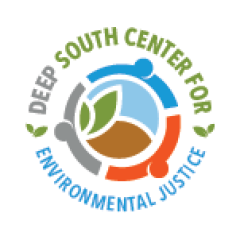
Aug 23, 2023
Deep South Center for Environmental Justice and Bullard Center Commit to Coalition for Green Capital’s Application to The EPA
Deep South Center for Environmental Justice and Bullard Center Commit to Coalition for Green Capital’s Application to The EPA “This is a Once-in-a-Lifetime Opportunity to Support Transformative Change and Accelerate a Just Transition to a Clean Economy” FOR IMMEDIATE RELEASE: August 23, 2023 Contact: Ginger LeBlanc | media@dscej.org Contact: deepsouth@skdknick.com New Orleans, LA – The Coalition for Green Capital (CGC) welcomes new strategic partnerships with The Bullard Center for Environmental and Climate Justice at Texas Southern University and the Deep South Center for Environmental Justice (DSCEJ). The Bullard Center, launched by the “father of environmental justice” Dr. Robert Bullard, and DSCEJ, led by Dr. Beverly Wright, an appointee of the White House Environmental Justice Advisory Council, have committed their support to CGC's application to seek funding from the EPA’s Greenhouse Gas Reduction Fund (GGRF) and a growing coalition working to establish a national green bank. This partnership underscores CGC's network of green banks, clean energy lenders, and community partners' ongoing dedication to exceeding the 40% EPA investment requirement and rapid deployment throughout all low-income and disadvantaged communities across the country. In line with EPA’s Notice of Funding Opportunity (NOFO) and CGC’s mission, The Bullard and DSCEJ will originate community projects throughout low-income and disadvantaged communities that the national green bank can support to address local issues and generate investments towards historically underfunded projects. “We’re thrilled to have the support of the nation’s leading environmental justice champions as we apply for the EPA’s remaining $20 Billion of the Greenhouse Gas Reduction Fund,” said Reed Hundt, chairman of the board and CEO of CGC. “To confront the climate crisis and advance the Administration’s vision of transitioning to a clean economy, our approach must maximize investments in low-income and disadvantaged communities. These environmental justice leaders are confident in our network’s ability to make historic progress for and with communities that need it most. "We are honored to have the Bullard Center and the Deep South Center for Environmental Justice support both of our NCIF and CCIA applications to the EPA,” said Eli Hopson, executive director and COO of CGC. “This partnership will deepen our equitable impact in LIDCs and empower communities to actively participate in the transition.” “We’ve decided to partner with the Coalition for Green Capital in its EPA proposal for funding a National Green Bank Network to deliver clean energy projects in low and moderate-income communities served by our HBCUs,” said Dr. Robert D. Bullard, Director of the Bullard Center for Environmental and Climate Justice at Texas Southern University and Co-Chair of the HBCU Climate Change Consortium. “This is a once-in-a-lifetime opportunity to support transformative change and accelerate a just transition to a clean economy by providing billions of investment dollars to our institutions, businesses, community leaders, non-profits, and communities that too often get left out and left behind.” “The Biden-Harris Administration's historic commitment of federal investments in environmental justice solutions have the potential to transform and revitalize communities after decades of devastation from pollution and environmental racism,” said Dr. Beverly Wright, founder and executive director of the Deep South Center for Environmental Justice, whose organization was also recently awarded a $13M grant through a partnership between EPA and the U.S. Department of Energy to house Environmental Justice Thriving Communities Technical Assistance Centers. “The Justice40 Initiative delivers efficient and renewable energy, flood protection, workforce development, home weatherization, and other benefits to communities that have suffered for so long. We are excited to partner with the Coalition for Green Capital to expand these funding opportunities in collaboration with environmental justice communities across America.” “Environmental justice must be a top priority as we seek to unlock billions and accelerate clean energy investments across the country,” said William J. Barber III, Director of Equitable Investments and Energy Justice at CGC. “Our partnership with the Bullard Center and the Deep South Center for Environmental Justice, possess both the scholarship and the trusted relationships in frontline communities to enable us to successfully engage and center their needs in the deployment of technologies, and make this transition one that is done by and with communities, not to them nor on their behalf.” CGC has announced similar partnerships with Dream.Org’s Green For All; Michigan Saves; Colorado Clean Energy Fund; Missouri Green Bank; Puerto Rico Green Energy Trust; Finance New Orleans; the Hawaii Green Infrastructure Authority (HGIA); CleanSource Capital; the Rhode Island Infrastructure Bank; Columbus Region Green Fund (CRGF); Solar and Energy Loan Fund (SELF); the Climate Access Fund; Clean Energy Fund of Texas; Growth Opportunity Partners, Inc.; the Community Development Venture Capital Alliance (CDVCA); DC Green Bank, Connecticut Green Bank, the Inter-Tribal Trade Consortium (ITTC) and Enervee. ### ABOUT THE DEEP SOUTH CENTER FOR ENVIRONMENTAL JUSTICE The Deep South Center for Environmental Justice provides opportunities for communities, scientific researchers, and decision-makers to collaborate on projects that promote the rights of all people to be free from environmental harm as it impacts health, jobs, housing, education, and general quality of life. A major goal of the Center continues to be the development of leaders in communities of color along the Mississippi River Chemical Corridor and the broader Gulf Coast Region that are disproportionately harmed by pollution and vulnerable to climate change. For more information, visit https://www.dscej.org. ABOUT THE BULLARD CENTER The Robert D. Bullard Center for Environmental and Climate Justice at Texas Southern University was launched to address longstanding issues of systemic inequality and structural racism that cause disproportionate pain, suffering, and death in Black and other people of color communities faced with environmental and climate justice concerns. Texas Southern University is a student-centered comprehensive doctoral university committed to ensuring equality, offering innovative programs that are responsive to its urban setting, and transforming diverse students into lifelong learners, engaged citizens, and creative leaders in their local, national, and global communities. To learn more or get involved, visit https://www.bullardcenter.org. ABOUT COALITION FOR GREEN CAPITAL The Coalition for Green Capital (CGC), doing business as the American Green Bank Consortium, is a 501(c)(3) chartered specifically to reduce greenhouse gas emissions and other forms of air pollution and redress climate and energy-related environmental injustice. Green banks are a proven finance model that uses public and philanthropic funds to mobilize private investment in renewable energy, energy efficiency, and other decarbonization technologies. For over a decade, the Coalition for Green Capital has led the Green Bank movement, working at the federal, state, and local levels in the U.S. and countries around the world. For more information, visit: https://coalitionforgreencapital.com....
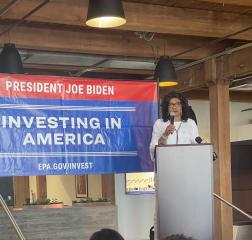
Aug 14, 2023
EPA Announces $13M Grant to DSCEJ to Help Communities Access Historic Funding under Biden-Harris Administration’s Investing in America Agenda
NEW ORLEANS, LA (August 14, 2023) – Today, the U.S. Environmental Protection Agency (EPA), members of Congress, and other elected officials celebrated a $13 million grant over five years to the Deep South Center for Environmental Justice (DSCEJ). The DSCEJ is among 16 entities selected nationally through a partnership between EPA and the U.S. Department of Energy to house Environmental Justice Thriving Communities Technical Assistance Centers (EJ TCTACs) and receive a total of $177 million in grant funding. The grants will help underserved and overburdened communities across the country access funds from President Biden’s Investing in America agenda for a variety of activities to advance environmental justice (EJ). “Almost one year ago on September 24, 2022, Administrator Regan alongside EJ and civil rights leaders in Warren County, North Carolina – the site of protests 40 years ago that launched the EJ movement – announced the establishment of the Office of Environmental Justice and Civil Rights,” said Acting EPA Region 4 Administrator Jeaneanne Gettle. “Today, in partnership with Region 6 and in direct response to feedback from communities, EJ leaders and their partners, I would like to congratulate the DSCEJ for being one of just 16 entities selected nationwide to aid communities throughout the U.S.” “The Deep South Center for Environmental Justice has accomplished so much since its inception—including building local community capacity to address environmental justice challenges and routinely assisting communities who lack access to federal funding. Their work raises awareness about frontline communities that deserve protection from disproportionate pollution and climate change,” said Region 6 Deputy Regional Administrator Stacey Dwyer. “This grant and the creation of this hub represent a step forward in realizing a dream for Gulf Coast Region families to thrive through clean air, water and energy. I would like to extend my gratitude to the Deep South Center for their innovative work in improving the lives of residents in Louisiana and along the Gulf Coast.” “We are thrilled to receive this grant and to be selected as one of only 16 Environmental Justice Thriving Communities Technical Assistance Centers in the country by the EPA and the Department of Energy,” said Dr. Beverly Wright, Executive Director of DSCEJ. “President Biden’s historic investments in environmental justice are a result of decades of advocacy by communities like ours in the Deep South and across the country. We are proud to be part of this effort, and look forward to helping break down these barriers to help our communities access the federal resources available to them so our children can grow up in an environment free from the dangers of pollution.” “I’m fighting to ensure federal investments flow to underserved communities that will foster environmental justice in Louisiana’s Second Congressional District. I proudly voted for the Bipartisan Infrastructure Law that made this funding a reality. As one of the sixteen esteemed organizations selected nationwide to host TCTACs, DSCEJ will be critical in advancing environmental justice and sustainable development. This will be more than just a center – it will be a beacon of hope, a catalyst for change, and a hub of expertise. This investment will facilitate knowledge-sharing and collaborative initiatives that empower our community to drive sustainability forward. By addressing environmental justice challenges, we are working towards a world where all Louisianans can flourish,” said Congressman Troy A. Carter, Sr. (LA-02). “Underserved communities across Florida have long borne the brunt of environmental inequities and lacked the tools needed to overcome these challenges,” said Congresswoman Sheila Cherfilus-McCormick (FL-20). “Thanks to the leadership of President Biden, this expansive network of assistance centers will remain a fundamental resource and serve communities that are most in need of support.” “As a strong advocate for environmental justice, I am pleased to see the EPA's announcement of a significant $130 million grant to the Deep South Center for Environmental Justice. This funding under the Biden-Harris Administration's Investing in America Agenda will undoubtedly play a crucial role in empowering communities across Mississippi's 2nd Congressional District to access historic resources aimed at addressing environmental disparities,” said Congressman Bennie Thompson (MS-2). “This investment reaffirms our commitment to addressing environmental injustices in our communities and ensuring that all residents have equal opportunities to live in healthy environments. I commend the EPA for their efforts and look forward to collaborating with the Deep South Center for Environmental Justice to achieve a more equitable and sustainable future." DSCEJ will receive $13 million over five years to remove barriers and improve accessibility for communities with environmental justice concerns. Their goals include building organizational capacity of at least 250 Community-Based Organizations (CBO) in underserved communities in Regions 4 and 6 in areas such as research and community engagement; assist CBOs in applying for $50-100 million in grants over the five-year performance period; and scale up the reach and impact of their new Community Investment and Recovery Center to sustain capacity-building services for the long term. EPA will deliver these resources in collaboration with the U.S. Department of Energy, whose funding allows the EJ TCTACs to provide support for identifying community opportunities for clean energy transition and financing options, including public-private partnerships supporting clean energy demonstration, deployment, workforce development and outreach opportunities that advance energy justice objectives. The formation of the EJ TCTACs is in direct response to feedback from communities and environmental justice leaders who have long called for technical assistance and capacity-building support for communities and their partners as they work to access critical federal resources. The 16 centers will provide comprehensive coverage for the entire United States through a network of over 160 partners, including community-based organizations, additional academic institutions, and Environmental Finance Centers so that more communities can access federal funding opportunities like those made available through President Biden’s Inflation Reduction Act and Bipartisan Infrastructure Law. The EJ TCTAC program is part of the Federal Interagency Thriving Communities Network and delivers on the Biden-Harris Administration’s Justice40 Initiative to ensure that 40% of the benefits of certain federal investments flow to disadvantaged communities. The new technical assistance centers will help ensure communities with environmental justice concerns can access President Biden’s historic investments in America to address generational disinvestment, legacy pollution, infrastructure challenges, and build a clean energy economy that will lower energy costs, strengthen our energy security, and meet our climate goals. Learn more about the selectees, their partners and the EJ TCTAC program. Learn more about environmental justice at EPA. ...

Aug 14, 2023
JUSTICE40 LEADERS GATHER IN NEW ORLEANS FOR NATIONAL ENVIRONMENTAL JUSTICE CONVENING
FOR PLANNING PURPOSES August 14, 2023 Contact: DeepSouth@skdknick.com JUSTICE40 LEADERS GATHER IN NEW ORLEANS FOR NATIONAL ENVIRONMENTAL JUSTICE CONVENING Community Leaders to Meet with Senior Biden Administration Officials and Policymakers During Three-Day Event NEW ORLEANS, LA – On Wednesday, August 16, 2023, leading environmental justice organizations, the Deep South Center for Environmental Justice (DSCEJ) and Robert D. Bullard Center for Environmental and Climate Justice, will kick off the Justice40 August convening in New Orleans, LA. The three-day convening brings together Justice40 hub leaders, activists, community leaders, and policymakers committed to advancing environmental justice and realizing the Biden Administration’s commitment to deliver 40 percent of the overall benefits from federal investments in climate and clean energy to disadvantaged communities. Executive directors Dr. Beverly Wright and Dr. Robert Bullard have been working to collectively engage, enlighten, and empower communities that are directly affected by deadly pollution and severe weather events to successfully advocate for resources intended for them. During the convening, White House Senior Advisor John Podesta and Dr. Jalonne White-Newsome, Senior Director of Environmental Justice at the White House Council on Environmental Quality (CEQ), will give keynote remarks throughout the convening. Additionally, representatives from federal agencies will speak with Hub leaders about their agencies' role in implementing Justice40 equitably, including the Department of Energy, Department of the Interior, Department of Transportation, Federal Emergency Management Agency, Health and Human Services, and Environmental Protection Agency. WHAT: Justice40 August Convening for Community-Based Organizations WHO: Dr. Beverly Wright, Deep South Center for Environmental Justice Dr. Robert Bullard, Robert D. Bullard Center for Environmental and Climate Justice John Podesta, White House Senior Advisor Dr. Jalonne White-Newsome, Senior Director of Environmental Justice at the White House Council on Environmental Quality Environmental justice community leaders, activists, and policymakers WHERE: JW Marriott 614 Canal Street New Orleans, LA 70130. WHEN: Wednesday, August 16 to Friday, August 18. If interested in covering a particular session, please reach out to DeepSouth@skdknick.com for additional details. The Justice40 initiative is part of the Biden-Harris administration’s whole-of-government approach to embedding environmental justice in the federal government's operations. It sets a goal that disadvantaged communities receive 40 percent of the overall benefits of federal investments in the areas of climate change; clean energy and energy efficiency; clean transit; affordable and sustainable housing; training and workforce development; the remediation and reduction of legacy pollution; and the development of critical clean water infrastructure. ### About the Deep South Center for Environmental Justice Families in the Gulf Coast deserve to live in communities that are free from deadly air and are more resilient to climate change and extreme weather. The Deep South Center for Environmental Justice (DSCEJ) works to empower and engage communities to put environmental justice and equity at the center of all climate action. Led by environmental justice scholar and advocate, author, civic leader, and professor of Sociology Dr. Beverly L. Wright, the DSCEJ uses research, education, and community and student engagement to advocate for policy change, lead health and safety training for environmental careers, develop social and emotional community wellness programs, and create new and environmentally healthy opportunities for the residents of communities disproportionately impacted by historic environmental injustice. About Bullard Center for Environmental and Climate Justice The Bullard Center for Environmental and Climate Justice at Texas Southern University addresses longstanding issues of systemic inequality and structural racism that cause disproportionate pain, suffering and death in Black and other people of color communities. The Center is directed by environmental justice scholar Dr. Robert D. Bullard and is housed in the Barbara Jordan-Mickey Leland School of Public Affairs. It strives to be a leading force for transformative environmental, climate and racial justice using rigorous science, community-driven research, policy, civic engagement programming, and effective advocacy. ...
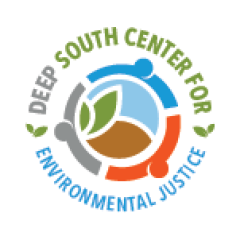
Jun 22, 2023
DSCEJ Testifies at EPA’s Public Hearing
Deep South Center for Environmental Justice Testifies at EPA’s Public Hearing on Louisiana’s Carbon Capture & Sequestration Program FOR IMMEDIATE RELEASE: June 22, 2023 Contact: Ginger LeBlanc | gingerl@dscej.org Contact: Valerie Keys | vkeys@skdknick.com New Orleans, LA – Yesterday, Dr. Beverly Wright, Executive Director of the Deep South Center for Environmental Justice (DSCEJ), joined environmental justice activists and local community leaders in Baton Rouge to testify in opposition to the Environmental Protection Agency’s (EPA) proposed approval of Louisiana’s Carbon Capture & Sequestration (CCS) Program during the agencies’ three-day public hearing. The EPA’s public hearing comes at a time when a new wave of gas-burning facilities is being proposed in Louisiana communities where the majority of residents are Black, Indigenous, and poor. Plans for many of these facilities include carbon capture and storage or CCS – a risky process that involves collecting carbon dioxide from industrial waste streams and transporting it via miles of pipeline to areas designated for injecting the carbon dioxide underground for permanent disposal. Last week, the Louisiana legislature attempted to tackle problems in state laws governing carbon dioxide waste injection. One of these laws significantly reduced the time of a company’s liability for operating a carbon dioxide injection well from 50 years, which is required by federal regulations, to 10 years. The recent changes to the state laws trigger another review by the EPA with the opportunity for public notice and comment. “Today’s hearing by the EPA is more than whether DNR should have this permitting authority over the Class VI Underground Injection Control Program, it’s about our future,” said Dr. Beverly Wright, Founder and Executive Director of the Deep South Center for Environmental Justice. “Who wants a future that repeats the past of leaking and broken-down oil and gas wells that are abandoned by companies? This is what we have with state laws that place the burden on the people of Louisiana to pay for and remedy the damage that occurs from carbon dioxide injection wells, and allow companies to walk away from the liabilities imposed by federal regulations.” DSCEJ also provided the EPA with critical information about the state’s proposed program and the risks of CCS: With a record of failure and mismanagement that resulted in destroying the Bayou Corne community, harming children and adults in Grand Bois, and leaving the state littered with leaking oil and gas wells, the Louisiana Department of Natural Resources (DNR) submitted a flawed application for authority to permit underground injection of carbon dioxide (CO2) that is collected from the waste stream of industrial facilities. 1. Carbon dioxide is hazardous The National Institutes of Health (NIH) reports carbon dioxide is an asphyxiant and toxicant. Carbon dioxide displaces oxygen in the air we need to breathe. High concentrations of carbon dioxide can result in death. Within one minute of CO2 poisoning, a person can pass out and suffer respiratory arrest. On February 22, 2020, in Satartia, Mississippi, people were not able to escape a major CO2 release from a pipeline rupture because their cars stalled out due to the clouds of carbon dioxide that displaced oxygen. 2. Carbon dioxide waste injection increases risks Carbon dioxide corrosion can break down the metals in pipelines and containers and leak out with the potential for contaminating the environment, including waterways and groundwater sources for drinking water. Carbon dioxide can also break down rocks underground and, like an earthquake, cause things to shift above ground. Louisiana has numerous fault lines that increase the potential for earthquake incidents occurring from carbon waste injection. Abandoned oil and unplugged gas wells can serve as straws for carbon dioxide to move upward to the atmosphere and increase climate risks, which defeats the entire purpose for carbon capture and storage or CCS. 3. Oil and gas companies lobbied to shift liability for damages caused by carbon dioxide waste injection to the people of Louisiana The damage that can be caused by a carbon dioxide waste injection well is clearly known to oil and gas companies. Their lobbyists pushed a bill through the Louisiana legislature that shifts liability to the people of Louisiana to pay for remedying this damage. This new law is in conflict with EPA's federal requirements. 4. The Louisiana Department of Natural Resources (DNR) has a record of failure. The Louisiana State Legislative Auditor has issued reports on DNR’s failure to regulate oil and gas wells. DNR’s failure to protect the Grand Bois community from oil waste led to severe health injuries suffered by children and adults. DNR’s failure to monitor and regulate resulted in the catastrophe of the ground giving way under the Bayou Corne community in 2012. 5. The DNR plans to give management of carbon dioxide waste injection to unnamed and unknown companies. In its application to the EPA, the DNR states that it will outsource the management of carbon dioxide waste injection wells to unnamed and unknown companies. Permanent underground storage of carbon dioxide has never been done before and involves significant risks for communities and our environment. View the testimony...

Jun 21, 2023
Remarks as Prepared for Delivery by Dr. Beverly Wright at EPA’s Public Hearing on Louisiana’s Carbon Capture & Sequestration Program
Remarks as Prepared for Delivery by Dr. Beverly Wright at EPA’s Public Hearing on Louisiana’s Carbon Capture & Sequestration Program New Orleans, LA – Today, Dr. Beverly Wright, Executive Director of the Deep South Center for Environmental Justice (DSCEJ), will testify using the following remarks as prepared for delivery during the EPA’s Public Hearing in opposition to the agency’s proposed approval of Louisiana’s Carbon Capture & Sequestration (CCS) Program. I am Dr. Beverly Wright, Founder and Executive Director of the Deep South Center for Environmental Justice based in New Orleans, Louisiana. I oppose approval of the Louisiana Department of Natural Resource’s application for primacy to regulate companies that seek to inject carbon dioxide waste underground. Through education and research, the Center works collaboratively with communities to build their capacity to drive solutions to industrial pollution that harms their health and warms our planet. We have achieved results in strengthening community organizations, improving the health of community members, training 17,000 people for environmental careers with a job placement rate of 91 percent, and moving our state toward an equitable and renewable energy economy. For more than 30 years, we have worked to place equity and justice at the center of environmental, energy, and climate policies. However, after these steps forward, we are now confronted with the possibility of a major step back. Oil and gas companies are now attempting to push us back and lock us in the continued burning of dirty energy dressed up with carbon capture and storage or CCS for numerous proposed gas plants. They have targeted Louisiana for the underground disposal of their carbon dioxide waste and want to apply to the DNR for permits to do this. Today’s hearing by the EPA is more than whether DNR should have this permitting authority over the Class VI Underground Injection Control Program, it’s about our future. What will our future be with the approval of a flawed application by the DNR that fails to acknowledge its Constitutional duties as a public trustee include the active and affirmative protection of overburdened communities in Louisiana, who are disproportionately Black, Indigenous and poor and demand environmental justice? Do we want our future in the hands of the DNR that plans to outsource to unnamed and unknown companies, without any contract terms, the job of managing millions of tons of carbon dioxide waste that can contaminate groundwater sources of drinking water, trigger earthquakes, and migrate above ground through any of the known and unknown unplugged oil and gas wells? Who wants a future that repeats the past of leaking and broken-down oil and gas wells that are abandoned by companies? This is what we have with state laws that place the burden on the people of Louisiana to pay for and remedy the damage that occurs from carbon dioxide injection wells, and allow companies to walk away from the liabilities imposed by federal regulations. Our future needs an EPA that will stand with the people of Louisiana who want a healthy and safe place to live for their families and future generations. I call on the EPA to deny the DNR’s application. Furthermore, I request the EPA to re-start this process in order to consider the recent state legislative changes related to carbon dioxide waste injection, and allow for public notice and comment. Thank you....
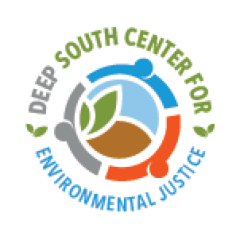
Jun 20, 2023
LOUISIANA RESIDENTS TO SHARE VIEWS ON UNDERGROUND INJECTION OF CARBON DIOXIDE WASTE AT EPA PUBLIC HEARING
FOR IMMEDIATE RELEASE: June 20, 2023 Contact: DeepSouth@skdknick.com LOUISIANA RESIDENTS TO SHARE VIEWS ON UNDERGROUND INJECTION OF CARBON DIOXIDE WASTE AT EPA PUBLIC HEARING Dr. Beverly Wright, Environmental Justice Activists, and Community Leaders Will Travel to Baton Rouge to Oppose Approval of Louisiana’s Flawed Application NEW ORLEANS, LA – On Wednesday, June 21, beginning at 1:00 pm CT, Dr. Beverly Wright of Deep South Center for Environmental Justice (DSCEJ) will travel with environmental justice activists and local community leaders to Baton Rouge, where the US EPA will hold the first of a three-day hearing on its draft approval of the Louisiana Department of Natural Resources’ application for authority to permit the underground injection of carbon dioxide waste. With a record of failure and mismanagement that resulted in destroying the Bayou Corne community, harming children and adults in Grand Bois, and leaving the state littered with leaking oil and gas wells, the Louisiana Department of Natural Resources (DNR) submitted a flawed application for authority to permit an entirely new category of wells for underground disposal of carbon dioxide, a hazardous substance. The EPA’s public hearing comes at a time when a new wave of gas-burning facilities are being proposed in Louisiana communities where the majority of residents are Black, Indigenous, and poor. Plans for many of these facilities include carbon capture and storage or CCS – a risky process that involves collecting carbon dioxide from industrial waste streams and transporting it via miles of pipeline to areas targeted for injecting the carbon dioxide underground for disposal. Last week, the Louisiana legislature attempted to tackle problems in state laws governing carbon dioxide waste injection. One of these laws significantly reduced the time of a company’s liability for operating a carbon dioxide injection well from 50 years, which is required by federal regulations, to 10 years. The recent changes to the state laws trigger another review by the EPA with the opportunity for public notice and comment. WHAT: EPA public hearing on Louisiana’s application for authority to permit the underground injection of carbon dioxide waste WHO: Dr. Beverly Wright, Deep South Center for Environmental Justice, environmental justice activists, and community leaders WHERE: Louisiana Department of Natural Resources, LaBelle Hearing Room, 1st Floor, LaSalle Building, 617 North 3rd Street in Baton Rouge, LA The event will also be live-streamed HERE. WHEN: Wednesday, June 21, from 1 pm - 5 pm and 6 pm - 8 pm ### About the Deep South Center for Environmental Justice Families in the Gulf Coast deserve to live in communities that are free from deadly air and are more resilient to climate change and extreme weather. The Deep South Center for Environmental Justice (DSCEJ) works to empower and engage communities to put environmental justice and equity at the center of all climate action. Led by environmental justice scholar and advocate, author, civic leader, and professor of Sociology Dr. Beverly L. Wright, the DSCEJ uses research, education, and community and student engagement to advocate for policy change, lead health and safety training for environmental careers, develop social and emotional community wellness programs, and create new and environmentally healthy opportunities for the residents of communities disproportionately impacted by historic environmental injustice. ...
Jun 7, 2023
Statement by Environmental Justice Organizations on the National Symposium on Climate Justice & Carbon Management
Statement by Environmental Justice Organizations on the National Symposium on Climate Justice & Carbon Management FOR IMMEDIATE RELEASE: June 7, 2023 Contact: Ginger LeBlanc | gingerl@dscej.org Contact: Valerie Keys | vkeys@skdknick.com June 1 - 4, 2023 We, the undersigned, attended the National Symposium on Climate Justice and Carbon Management at the Wingspread Center in Wisconsin hosted by GreenLatinos, WE ACT for Environmental Justice, Deep South Center for Environmental Justice, American University’s Institute for Carbon Removal, and the New York Community Trust Foundation. We came as diverse groups representing environmental justice organizations to engage in a productive dialogue on the climate and environmental justice implications, questions, and concerns related to carbon management strategies currently being funded and promoted by the federal government and industries. Much of the conversation and questions focused on concerns related to industrial carbon removal in the form of Carbon Capture and Storage (CCS), Carbon Capture Storage and Utilization (CCUS), hydrogen fuels, and Direct Air Capture (DAC), among others. We write to express the deep concerns and reflections that came out of these discussions which included: There is a lack of a holistic consideration of carbon management that ignores the possibilities for a complete transition away from fossil-fueled industries and economies. There is no regulatory regime at any level of government – local, state or federal – that can protect environmental justice communities from the cumulative risks and dangers associated with industrial carbon management like CCS. Within the weak regulatory frameworks many of us fight to change, bad actors that fail to enforce environmental regulations are in the process of being approved to hold primary permitting authority over CCS projects. These weak regulatory frameworks are further weakened with the recent permitting reforms that strip down the National Environmental Policy Act (NEPA) and could fast-track CCS/CCUS and hydrogen projects. Huge financial incentives for CCS/CCUS and hydrogen projects that are in the 45Q and 45V federal tax credits, the Bipartisan Infrastructure Law (BIL), and the Inflation Reduction Act (IRA) are inappropriately investing public tax dollars in risky ventures that could prove harmful to environmental justice communities and worsen climate change without much oversight. A discussion of so-called “guardrails” is imprudent and premature when proponents of CCS/CCUS, DAC, and hydrogen fail to acknowledge the known and potential hazards for communities as well as operation failures that increase climate risks. The hazards, risks, and uncertainties of large-scale deployment of industrial carbon removal strategies should not be hidden, ignored or dismissed, but should be clearly identified, defined, and made known as public information. What is being proposed at the federal level is undermining wins achieved at the local and state levels to transition away from fossil fuels and harmful co-pollutants like particulate matter to a just and equitable energy economy. Some good examples of state and local gains include the New Jersey Environmental Justice Law, New York Cumulative Impacts Law, and the City of New Orleans Renewable and Clean Energy Portfolio. New Orleans also passed the first prohibition on CCS/CCUS. Often overlooked in climate mitigation and resiliency policies and funding opportunities is the consideration of natural, biological carbon sinks, such as the restoration of mangroves, soil improvements, and forest restoration. These approaches also need careful assessment of potential social and equity impacts in their application. The overarching purpose of carbon removal should be the complete and rapid transition away from harmful fossil fuels and other sources of industrial pollution, with an absolute priority on reducing chronic disparities of pollution exposure and industrial harm experienced by environmental justice communities. It’s not lost on us that we convened this weekend at the same location where the Precautionary Principle was developed in 1998. To this end, we affirm that any activity or technology with demonstrated and/or reasonably foreseeable threats to public health and the environment must undertake precautionary measures, even if some causes and effects are not yet scientifically determined. For reasons listed above and more, this absolutely applies to the entire premise of carbon management and associated technologies. In solidarity, Dr. Beverly Wright, Founder and Executive Director, and Monique Harden, Director of Law and Public Policy, Deep South Center for Environmental Justice Peggy Shepard, Co-Founder and Executive Director, and Dana Johnson, Senior Director of Strategy and Federal Policy, WE ACT for Environmental Justice Dr. Ana Isabel Baptista, Tishman Environment & Design Center, The New School Maria Lopez-Nunez, Deputy Director, Ironbound Community Corp. Jennifer M. Hadayia, MPA, Executive Director, Air Alliance Houston Beto Lugo Martinez, Executive Director, Clean Air Now EJ Anthony Karefa Rogers-Wright, Director of Environmental Justice, New York Lawyers for the Public Interest Sharon Lewis, Executive Director, Connecticut Coalition for Economic and Environmental Justice Dr. Nicky Sheats, Esq., Center for the Urban Environment, John S. Watson Institute for Urban Policy and Research at Kean University Huda Alkaff, Founder and Director, Wisconsin Green Muslims Nayyirah Shariff, Director, Flint Rising Mark Magaña, Founding President and CEO, and Irene Burga Márquez, Climate Justice and Clean Air Program Director, GreenLatinos Rev. Lennox Yearwood, Hip Hop Caucus ...
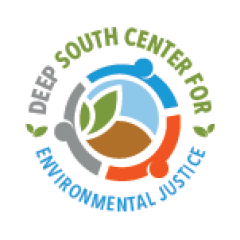
May 25, 2023
Deep South Center for Environmental Justice Reacts to Supreme Court’s Decision to Limit Clean Water Regulations
FOR IMMEDIATE RELEASE: May 25, 2023 Contact: Ginger LeBlanc | gingerl@dscej.org Valerie Keys | vkeys@skdknick.com Deep South Center for Environmental Justice Reacts to Supreme Court’s Decision to Limit Clean Water Regulations New Orleans, LA – In response to today’s Supreme Court’s decision weakening the EPA’s ability to enforce wetland protections, Dr. Beverly Wright, Founding Executive Director of the Deep South Center for Environmental Justice, released the following statement: “Once again, the U.S. Supreme Court has removed an important protection in our nation. This time the target is wetlands that filter out pollutants from waterways and provide important defenses against major storms and flood events, now supercharged by climate change. In Louisiana and other coastal states, Black and other communities of color are working to preserve and protect their wetlands from projects that entail draining and cementing over them. The Supreme Court has gutted Clean Water Act protections for these wetlands and sets developers loose to destroy them. This decision is an injustice to communities across America where flood risks have been mitigated by wetlands.” ### About the Deep South Center for Environmental Justice Families in the Gulf Coast deserve to live in communities that are free from deadly air and are more resilient to climate change and extreme weather. The Deep South Center for Environmental Justice (DSCEJ) works to empower and engage communities to put environmental justice and equity at the center of all climate action. Led by environmental justice scholar and advocate, author, civic leader and professor of Sociology Dr. Beverly L. Wright, the DSCEJ uses research, education, and community and student engagement to advocate for policy change, lead health and safety training for environmental careers, develop social and emotional community wellness programs, and create new and environmentally healthy opportunities for the residents of communities disproportionately impacted by historic environmental injustice. ...